BTFS Dashboard
BTFS2.0 Dashboard github address: https://github.com/bittorrent/btfs-dashboard
BTFS2.0 Dashboard is a tool created by the BTFS team to view the current node status and data. It is divided into six modules: DASHBOARD、CHEQUES、ONLINE PROOF、PEERS、FILES、SETTINGS.
The way to open it: After the node is successfully run, go through localhost:5001/dashboard to view this page.
BTFS team provides official dashboard frontend(local node only): https://dashboard.btfs.io/
DASHBOARD
Through the DASHBOARD, you can learn the basic information of the nodes and the details of their operation, including node status, connection status, score and score-related information, BTTC ADDRESS and VAULT ADDRESS, etc. You can visualize the revenue of the nodes and perform deposit/withdraw operations on the VAULT ADDRESS.
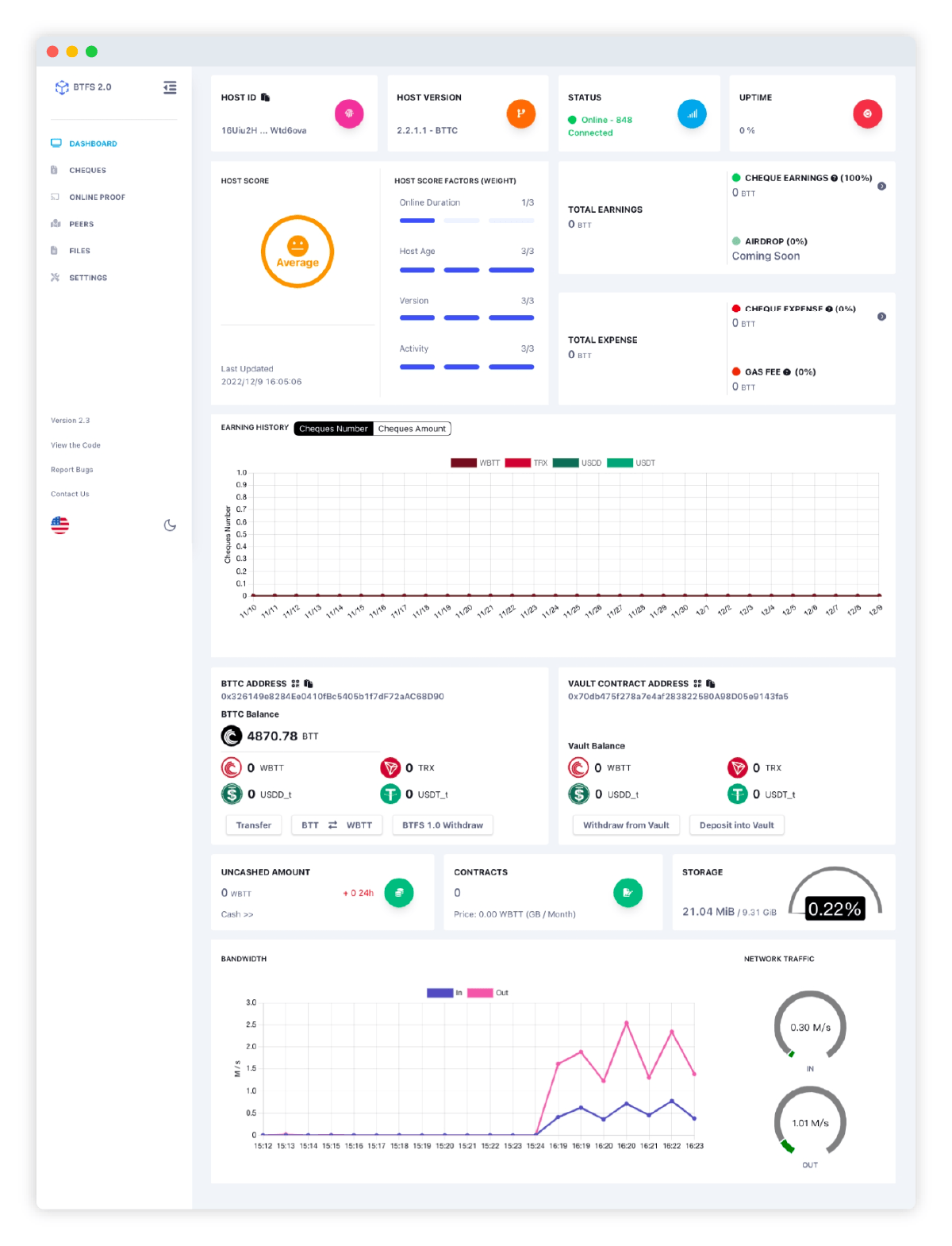
DASHBOARD
CHEQUES
Through the cheque module, miners can view the current node's cheque income and cheque expenses, and perform withdrawal operations on the received cheques. The withdrawn wbtt will be received by the node's VAULT ADDRESS.
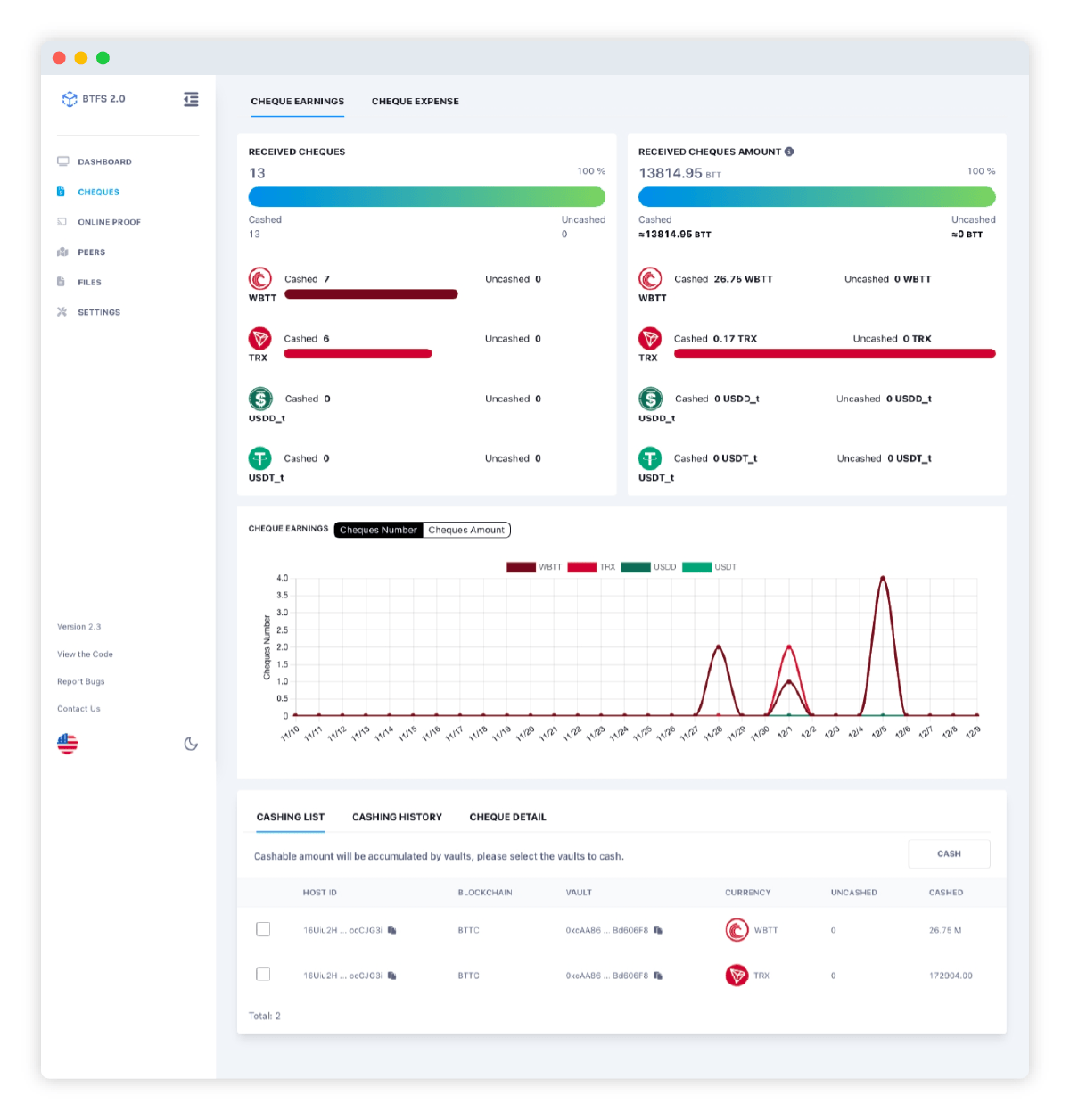
CHEQUES
ONLINE PROOF
The node proves the online status of this node by sending data to the online proof service periodically.
This module shows the details of the online proof data.
Heartbeat nonce, used to prove that the node is always online. Once an hour It increases 24 times a day normally, 1, 2, 3, ...... in that order.
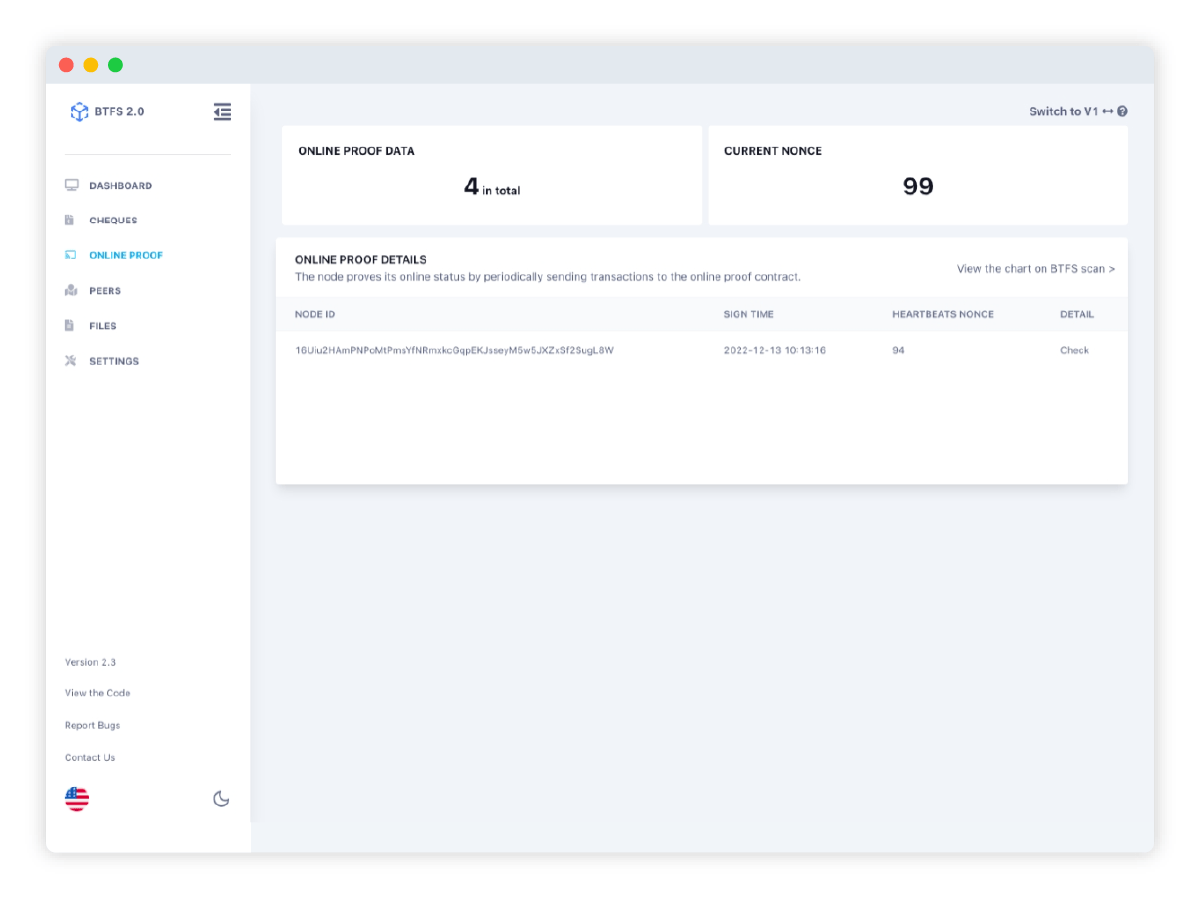
ONLINE PROOF
PEERS
The peers module allows you to view information about other nodes with which the current node has established a P2P connection to, including the location of the peers to which it is connected, the peer ID, etc. Miners can also add links manually by entering the address of the node to be linked (E.G./ip4/76.176.168.65/tcp/4001/p2p/QmbBHw1Xx9pUpAbrVZUKTPL5R).
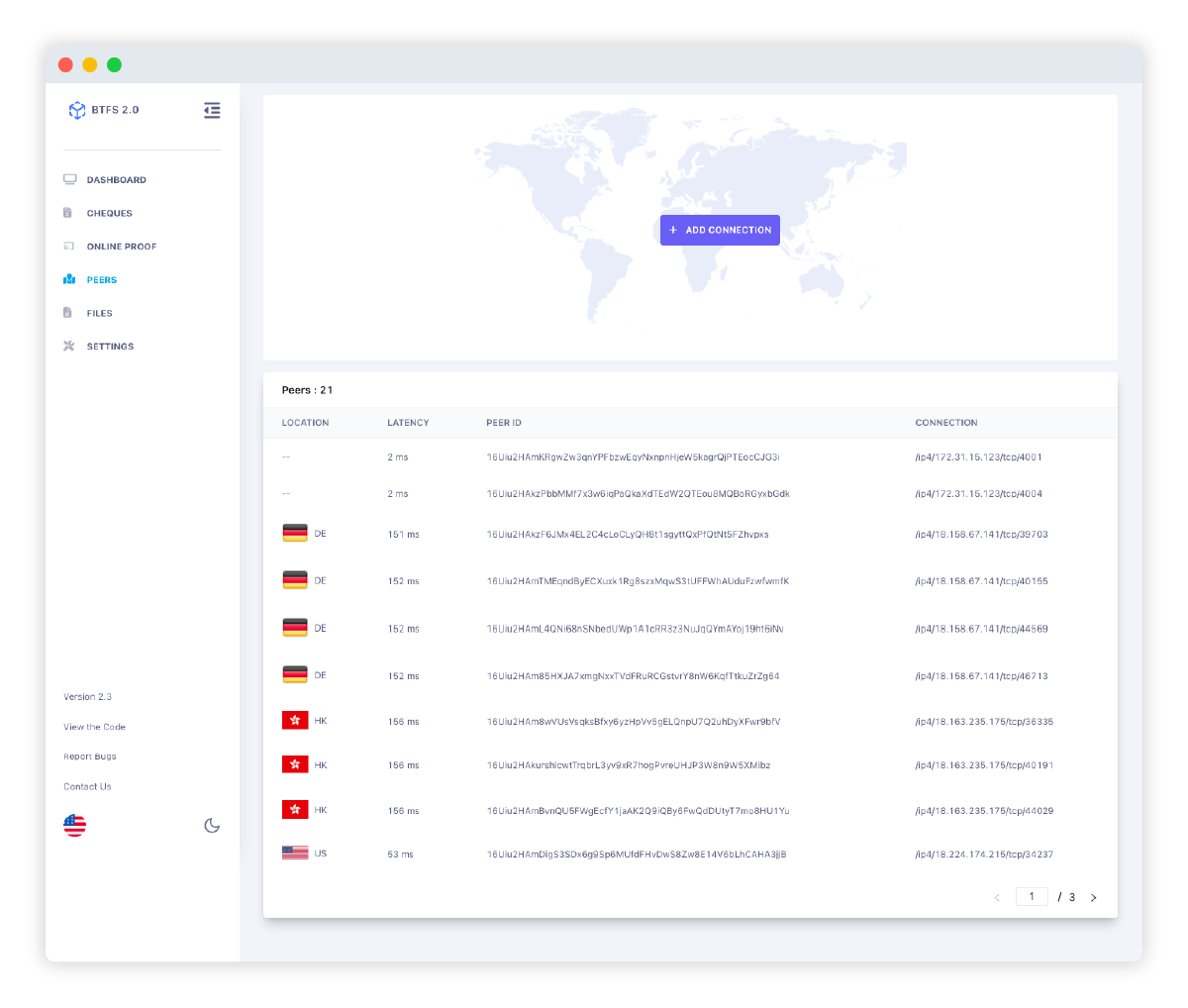
PEERS
FILES
The file module allows miners to view the current node's storage space, including all storage space and stored space, and the number of file blocks. By clicking the "Import" button, files or folders can be imported to the local BTFS node. The miner can manage the imported files in the local node.
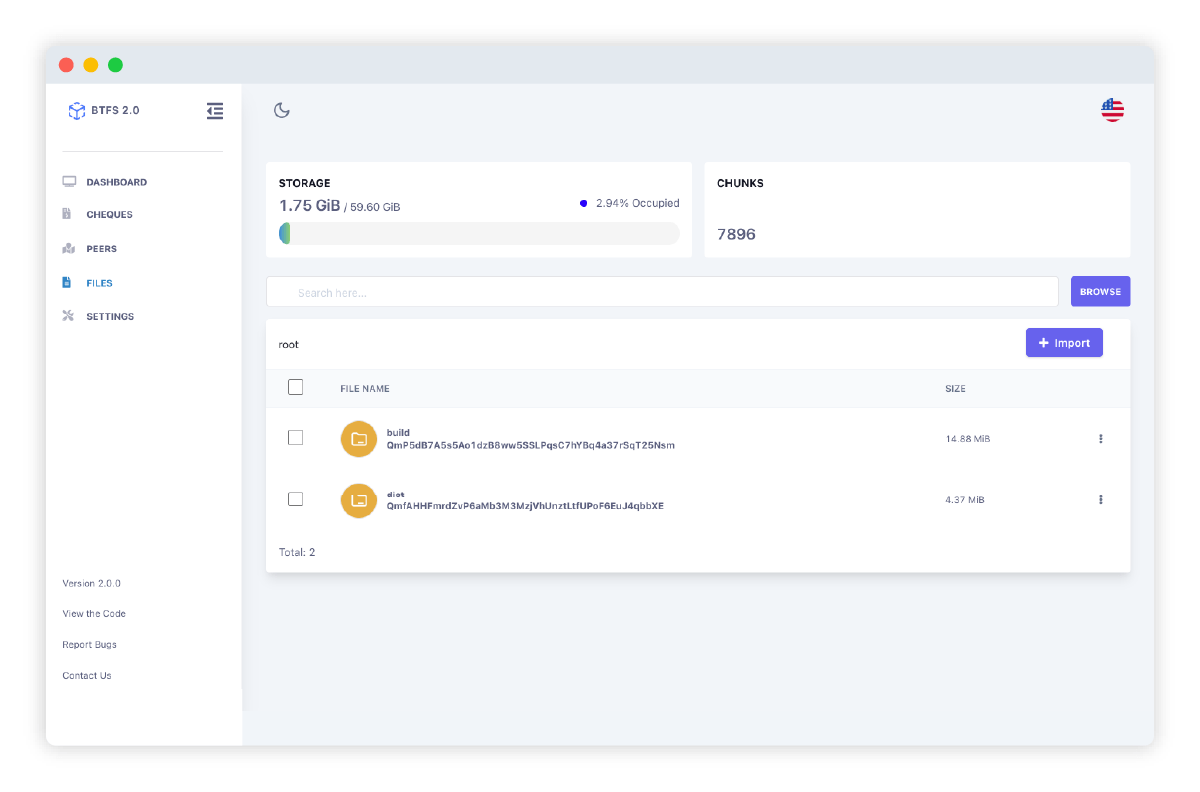
FILES
SETTINGS
Miners can set up the module, advanced configure the API port (default is http://localhost:5001), and export private keys with one click.
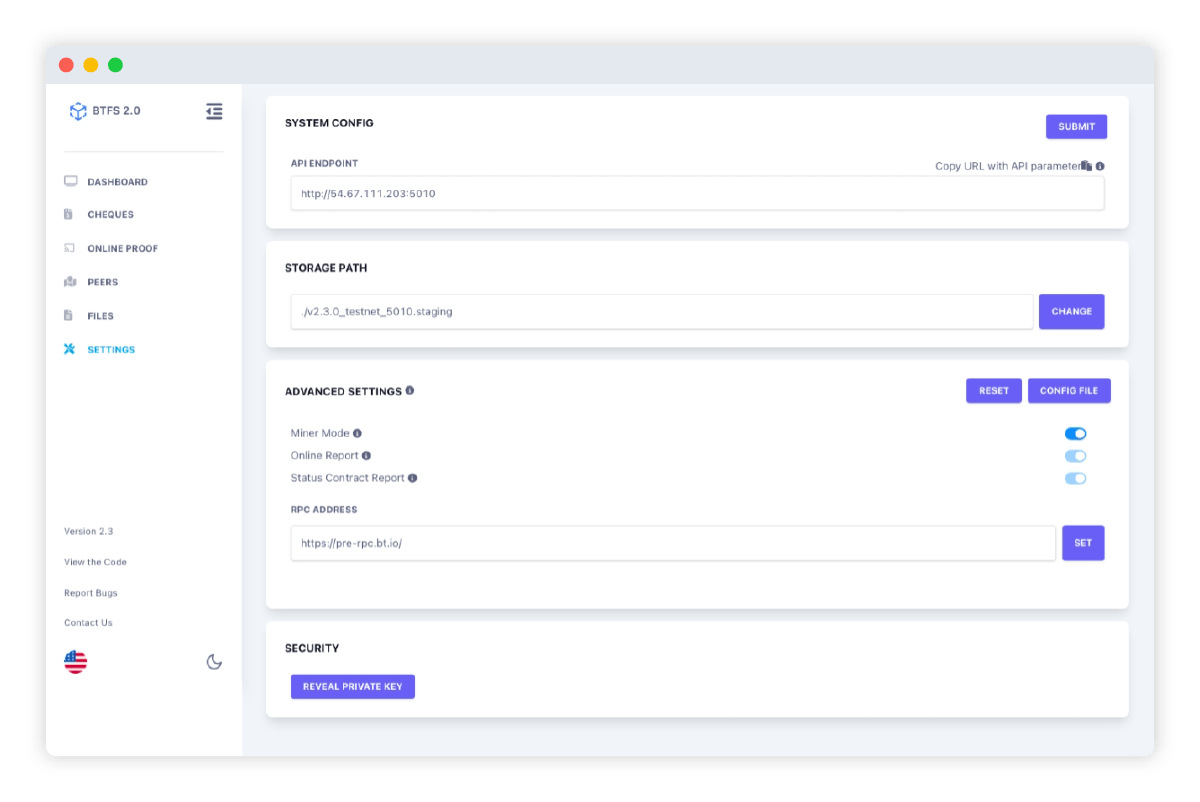
SETTINGS
Updated 9 months ago
